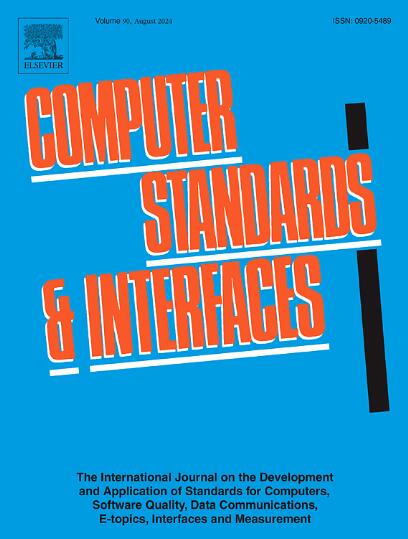基于Jensen-Shannon散度的推荐系统自适应模糊聚类方法
IF 4.1
2区 计算机科学
Q1 COMPUTER SCIENCE, HARDWARE & ARCHITECTURE
引用次数: 0
摘要
在当今世界,用户被大量的产品所包围,推荐系统被用来帮助用户找到感兴趣的产品。聚类方法在推荐系统中经常被用来推荐相关的产品。模糊聚类技术是最常用的聚类方法之一,它通过生成的隶属矩阵来确定每个产品与聚类的关联程度。然而,在这些方法中确定簇的数量是一个挑战。本文提出了一种自适应模糊C-Means Jensen - Shannon (AFCM-JS)算法,这是一种基于兴趣的模糊聚类方法,用于估计聚类的数量。提出的AFCM-JS算法在一个包含6个聚类和1000个元素的人工数据集上实现。将研究结果与基于模糊聚类算法的Fuzzy C-Means (FCM)、Probabilistic C-Means (PCM)和Probabilistic Fuzzy C-Means (PFCM)方法以及基于兴趣的聚类方法JS进行了比较。为了评价比较结果,采用了7个不同的聚类效度指标和一个精度度量。AFCM-JS方法在不同最大聚类数的情况下,预测聚类数一致且准确。用聚类有效性指标和精度度量对该方法的聚类能力进行了测试,结果表明AFCM-JS方法是成功的。在为电影推荐系统创建的数据集上测试了AFCM-JS方法的性能,该数据集的目的是向用户推荐电影。为此,电影数据使用Dirichlet函数对动作、冒险、喜剧、戏剧和恐怖类型进行加权,创建一个包含这5种电影类型特征的数据集。利用所创建的电影数据集,使用7种不同的聚类有效性指标,将AFCM-JS方法与3种不同的模糊聚类方法进行比较。此外,基于精度度量,将AFCM-JS算法与其他3种模糊聚类方法进行了比较。通过比较,AFCM-JS方法的性能达到了81.9366%,是所有方法中性能最高的。此外,在聚类有效性指标方面比较了本文方法的性能,AFCM-JS方法成功地预测了合适的聚类数量,并有效地根据类型对相似电影进行了分组,达到了目的。本文章由计算机程序翻译,如有差异,请以英文原文为准。
A novel clustering approach for recommendation systems using adaptive fuzzy clustering with Jensen–Shannon divergence
In today’s world, where users are surrounded by a multitude of products, recommender systems are employed to assist users in finding products of interest. Clustering methods are frequently utilized in recommender systems to suggest relevant products. Fuzzy clustering techniques, one of the most commonly used clustering methods, determine the degree of relevance of each product to a cluster through the membership matrix it generates. However, determining the number of clusters in these methods poses a challenge. This study proposes an Adaptive Fuzzy C-Means Jensen Shannon (AFCM-JS) algorithm, a fuzzy and interest-based clustering method that estimates the number of clusters. The proposed AFCM-JS algorithm is implemented on an artificial dataset consisting of 6 clusters and 1000 elements. The results of the study are compared with Fuzzy C-Means (FCM), Probabilistic C-Means (PCM), and Probabilistic Fuzzy C-Means (PFCM) methods, which are fuzzy-based clustering algorithms, and the interest-based method JS. To evaluate the comparison results, 7 different cluster validity indices and an accuracy metric are employed. AFCM-JS method consistently and accurately predicted the number of clusters when tested with different maximum cluster numbers. When the clustering ability of the method is tested with cluster validity indices and the accuracy metric, AFCM-JS is found to be successful. The performance of the AFCM-JS method is tested on a dataset created for a movie recommendation system with the aim of recommending movies to users. For this purpose, movie data is weighted with a Dirichlet function for action, adventure, comedy, drama, and horror genres, creating a dataset that includes the characteristics of these 5 movie genres. The AFCM-JS method is compared with 3 different fuzzy clustering methods using 7 different cluster validity indices with this created movie dataset. Additionally, the AFCM-JS algorithm is compared with the other 3 fuzzy clustering methods based on the accuracy metric. As a result of this comparison, the AFCM-JS method achieves the highest performance among the methods with 81.9366%. Furthermore, when the performance of the proposed method is compared in terms of cluster validity indices, the AFCM-JS method successfully predicts the appropriate number of clusters and effectively groups similar movies according to their genres, accomplishing the purpose.
求助全文
通过发布文献求助,成功后即可免费获取论文全文。
去求助
来源期刊

Computer Standards & Interfaces
工程技术-计算机:软件工程
CiteScore
11.90
自引率
16.00%
发文量
67
审稿时长
6 months
期刊介绍:
The quality of software, well-defined interfaces (hardware and software), the process of digitalisation, and accepted standards in these fields are essential for building and exploiting complex computing, communication, multimedia and measuring systems. Standards can simplify the design and construction of individual hardware and software components and help to ensure satisfactory interworking.
Computer Standards & Interfaces is an international journal dealing specifically with these topics.
The journal
• Provides information about activities and progress on the definition of computer standards, software quality, interfaces and methods, at national, European and international levels
• Publishes critical comments on standards and standards activities
• Disseminates user''s experiences and case studies in the application and exploitation of established or emerging standards, interfaces and methods
• Offers a forum for discussion on actual projects, standards, interfaces and methods by recognised experts
• Stimulates relevant research by providing a specialised refereed medium.
 求助内容:
求助内容: 应助结果提醒方式:
应助结果提醒方式:


